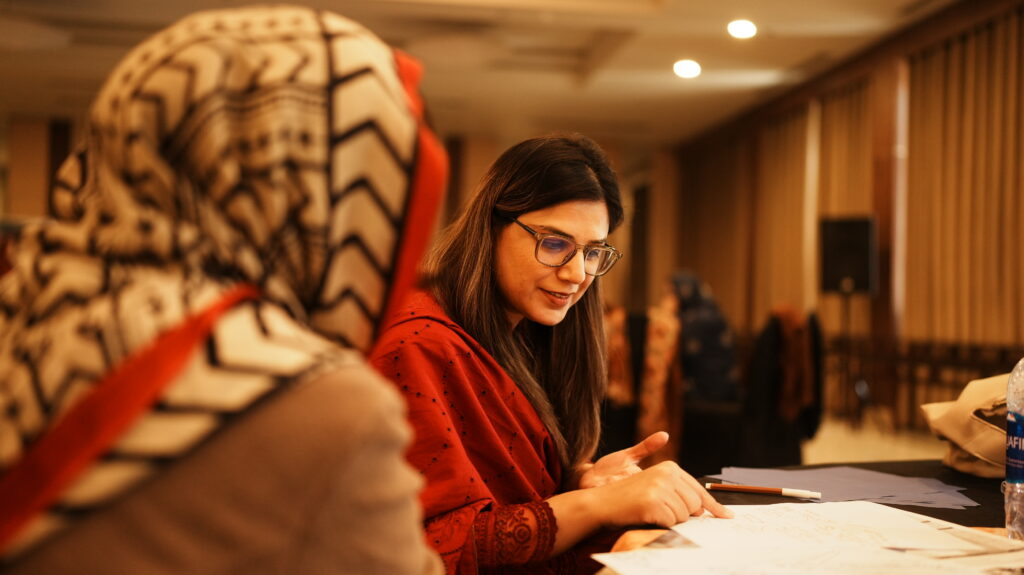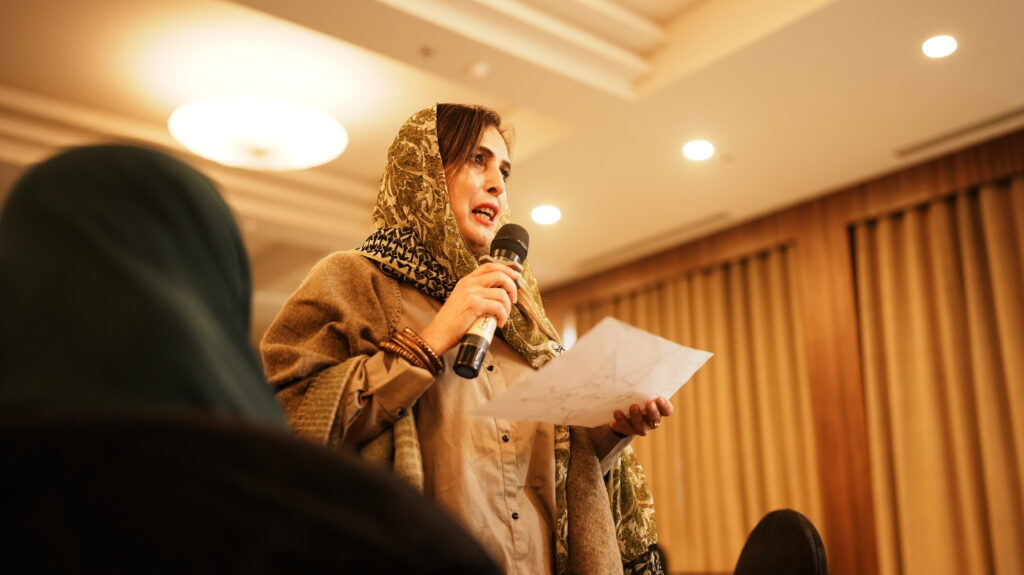
The Toolkit on Nurturing the Spiritual Development of Children in Early Childhood has had a profound impact in Pakistan since its implementation. Its transformative power shines through the reflections of faith leaders, facilitators, parents, and caregivers, each offering insight into how the Toolkit has positively contributed to their families and communities.
Parents experienced personal growth and deeper connections with their children. Facilitator Alina Afzal was particularly moved by the transformation she observed among widowed mothers. “Often marginalized by society while selflessly dedicating themselves to their children, these women experienced, for the first time, a profound connection with themselves,” she noted. “It gave them a renewed sense of strength and empowerment. They began to recognize their intrinsic value and worth.” Alina believes this awakening will lead to long-lasting benefits for both the women and their children, illustrating the Toolkit’s intergenerational impact.
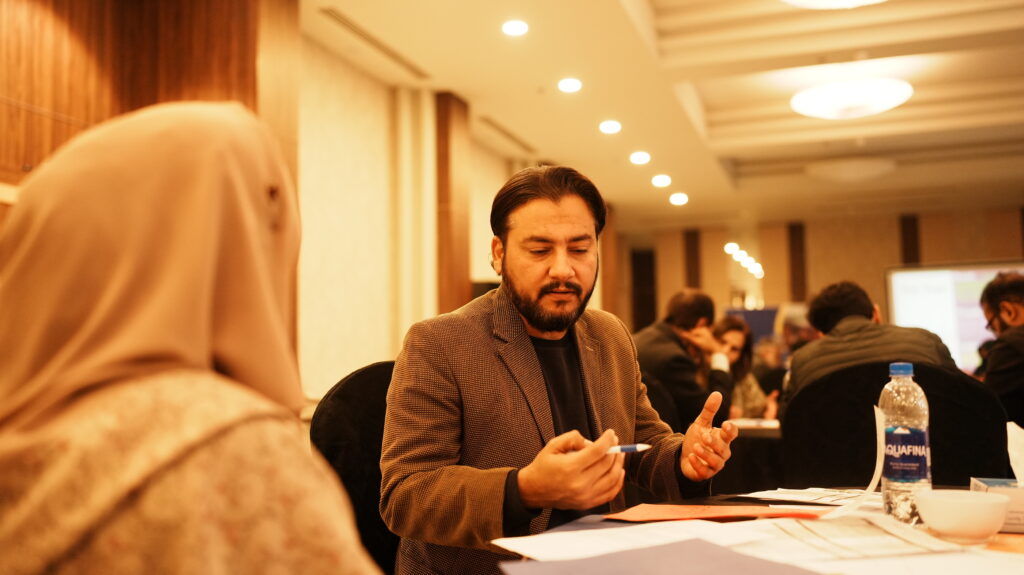
One mother shared how the training reshaped her relationship with her children. “I now understand how important it is to connect with my children in a compassionate and understanding way,” she said. Previously harsh and distant, she described how the Toolkit helped her recognize the harmful effects of violence and adopt a more nurturing approach. “Now, I speak to them calmly and try to explain things. As a result, they’ve started sharing more with me.”
This mother also spoke about newfound moments of connection, such as playing outside with her children, a simple yet meaningful action that helped build trust. Reflecting on her own growth, she shared, “I didn’t know how to handle things before, but now I feel calm and equipped.”
Faith leaders, too, experienced a shift in mindset. For Naeem ur Rehman, a local religious leader, the Toolkit was a turning point in his understanding of child abuse. “We weren’t paying enough attention to what children go through when they experience abuse,” he admitted. Inspired by the training, Naeem began promoting forgiveness and kindness as alternatives to harsh discipline, aligning his message with the values of his faith.
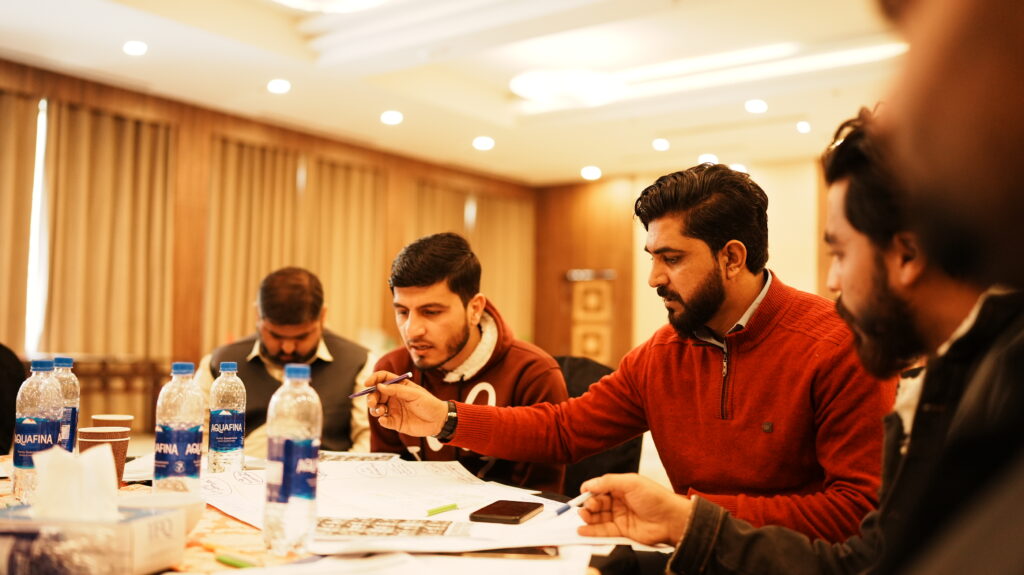
Naeem has since become an advocate against violence, using his platform to raise awareness in mosques, schools, and the wider community. He encourages parents and caregivers to reflect on their practices and adopt non-violent methods rooted in compassion and religious teachings. The Toolkit empowered him to move from passive observation to active intervention, becoming a voice for change.
For faith leaders like Naeem, the Toolkit offers a valuable framework to address child protection in a way that resonates with their beliefs. It not only supports their work but inspires them to challenge harmful norms and promote nurturing, non-violent parenting.
The Toolkit didn’t just impact children and the participants, but the organization itself. Shahnaz Kausar, Childcare Coordinator at Islamic Relief Pakistan, described the Toolkit as “not only impactful, but essential for every organization working for children.” Her endorsement underscores the Toolkit’s potential to transform the work of all those engaged in child development. “It goes beyond traditional programming,” she shared, “and plays a vital role in the lives of communities, especially those working for the well-being of children.”
Shahnaz also highlighted the inner transformation of children as one of the most remarkable outcomes. Beyond fostering awareness of safeguarding and protection, she and other facilitators observed children developing values like empathy, self-awareness, and compassion. “We witnessed an inner transformation grounded in values, along with the seeds of broader social change,” she explained. These values, deeply rooted in spiritual development, nurture a sense of responsibility and empower children to contribute positively to their communities.
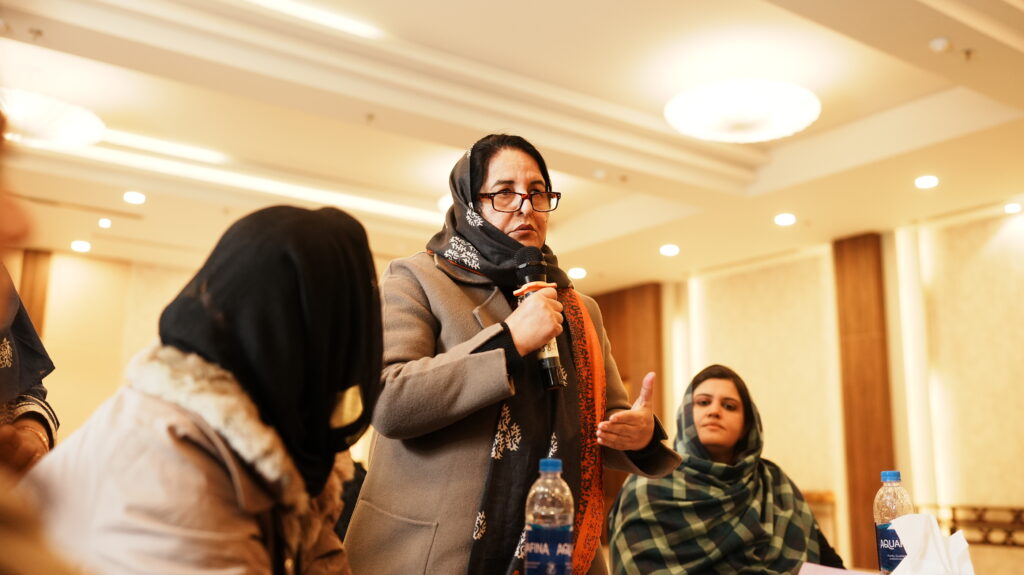
The positive impact of the Toolkit in Pakistan is undeniable. It has contributed to the prevention of violence against children and promoted their holistic well-being, with a particular emphasis on spiritual development. It has helped reshape parenting practices, strengthen family bonds, and empower children to trust and communicate more openly.
Individuals like Alina have found renewed purpose in advocating for child protection. As she powerfully stated, “It is crucial for all of us, as members of society, to speak up against violence and raise awareness. By doing so, we not only strengthen ourselves but also our communities.”
